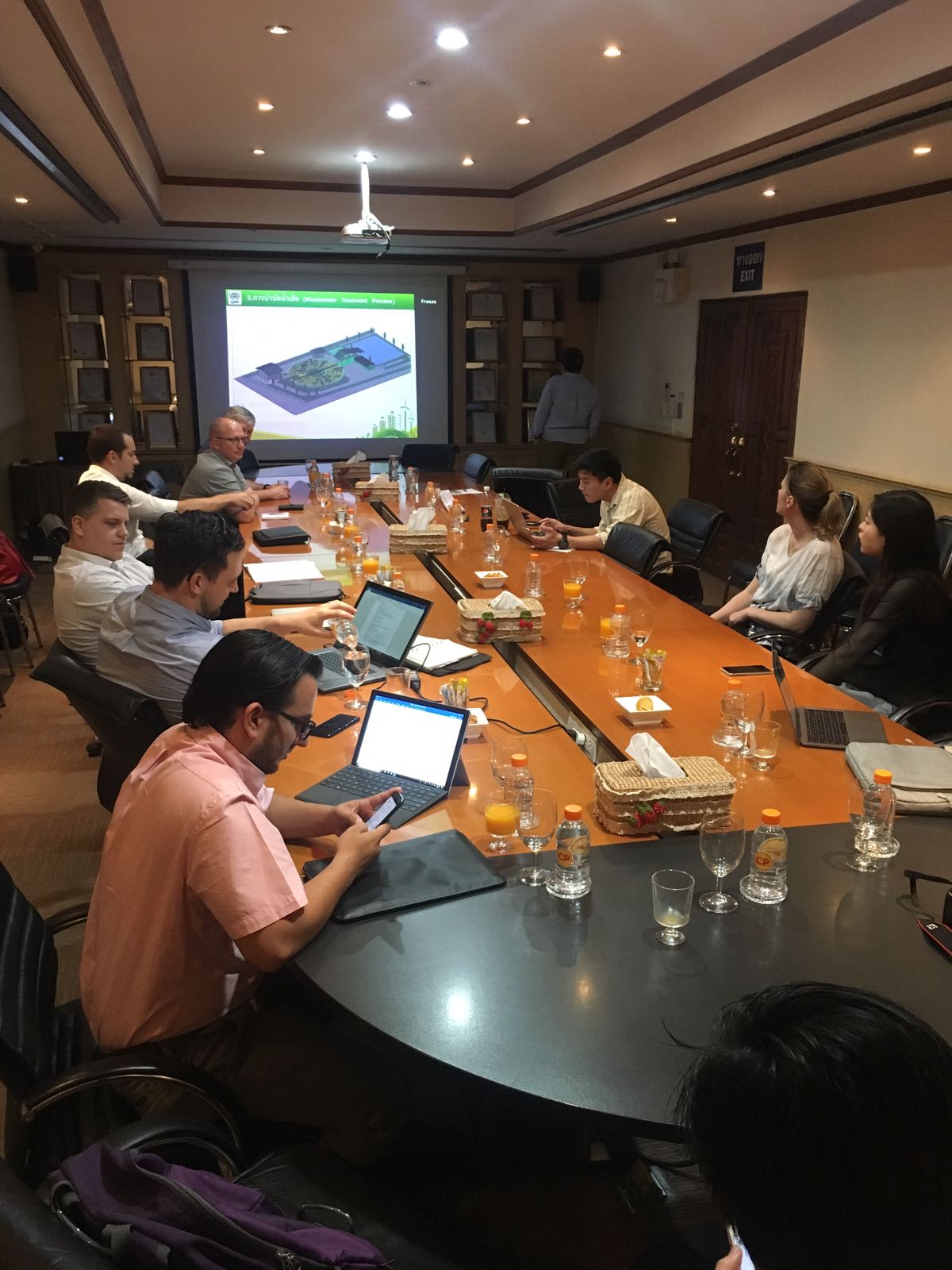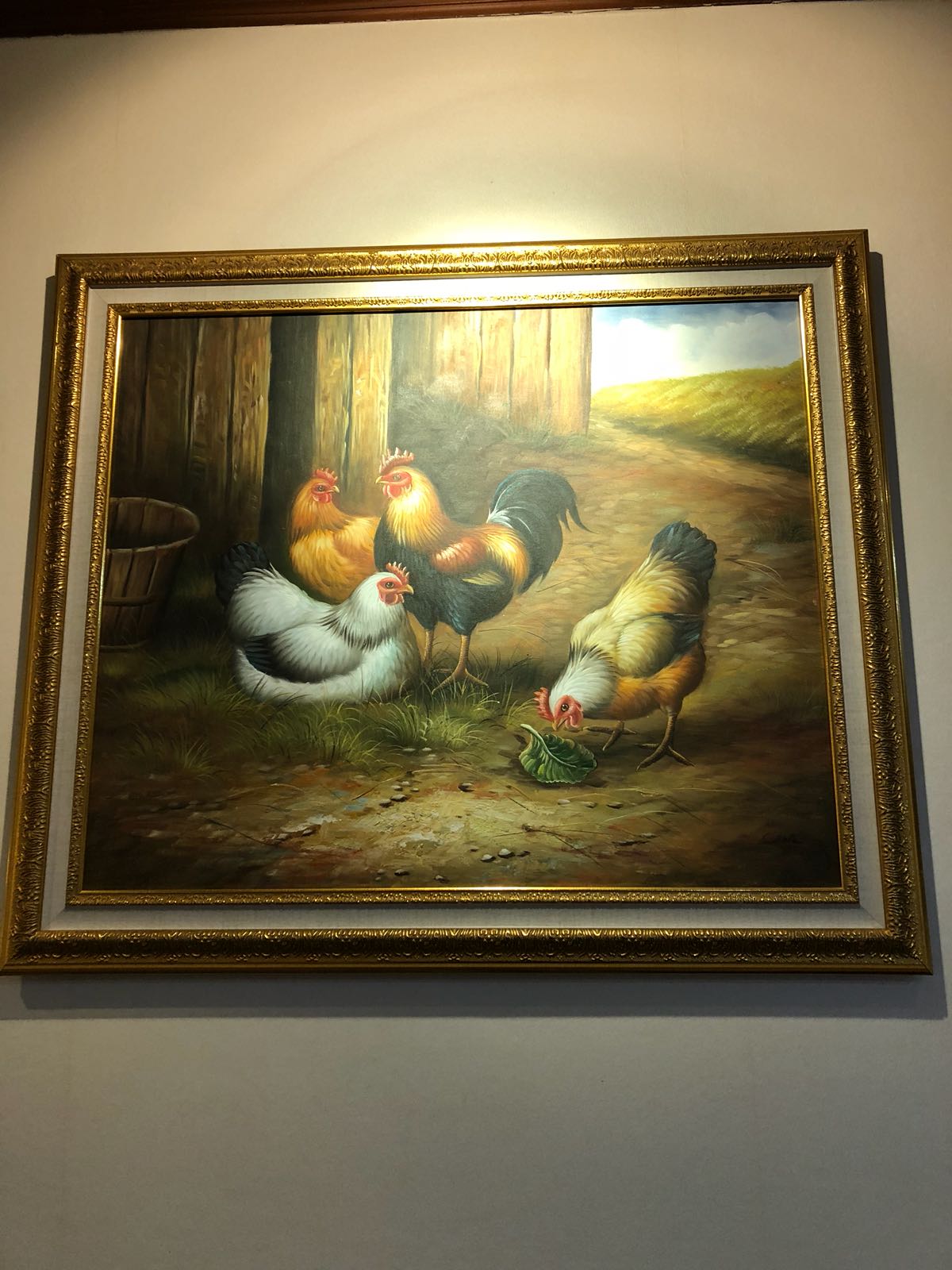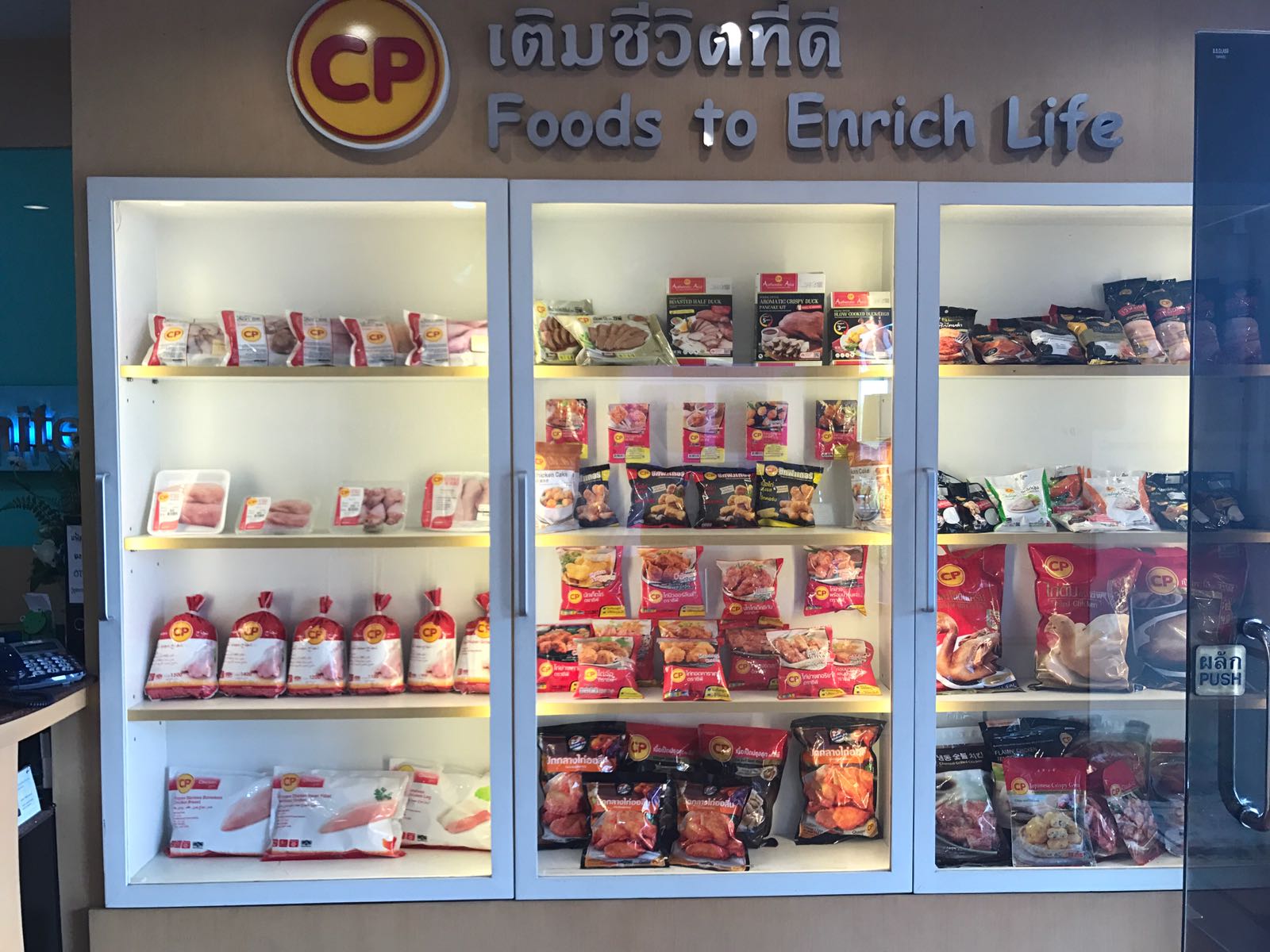Day one of the Study Tour: Charoen Pokphand Food PCL
08/05/2018

Study Tour Blog – Charoen Pokphand Food PCL
Day one of the international study tour in Thailand got off to a stormy beginning with torrential rain and thunderstorms. The clouds soon parted and jet lag was obliterated with copious amounts of caffeine.
First stop of the tour was to the processing factory of Charoen Pokphand Food PCL (Public Company Limited). A leading food producer supplying chicken to markets across the world. With the largest portions of its consumer base coming from the UK and Japan and providing produce to market leading restaurants such as KFC. We were given a warm welcome by the pleasant team at the facility a short distance from Bangkok led by Aekkarat Boonnoon who is the General Manager of Business Process improvement.
After some introductions, we were delivered an informational video detailing the operations. The supply chain is fully vertically integrated stretching back to produce of feed for the broliers (chicks in farms), breeding, slaughterhouses, process manufacturing and distribution centres, the reason for the full integration of the supply chain is to ensure full quality control and safety in its products. This strategy reduces risks in the supply chain by standardising processes across the board and ensuring consistency throughout its operations.
CPF does not manage all of the breeding capacity independently so therefore sub-contract some of the farming operations to third parties. While this might seem risky from a quality perspective they ensure this by requiring third party farmers to breed the chickens according to CPF standards and using CPF feed products.
In the production facility, we visited, there were some frightening figures around the quantity throughput of livestock that left some of the group scratching their heads. After 42 days of bulking, when the chickens reach optimum weight, they enter the slaughter house where DAILY, 230,000 chickens meet their demise ready for the production line. They are then dipped into zero-degree temperature treated water to avoid bacterial growth and readied for processing. The facility offers multiple cooking methods for the chicken including grilled, steamed and roasted with chosen marinade as required by the end customer or according to CPF’s own product range. The semi-automated factory has a workforce that keep high levels of quality control by consistently checking every product per activity including metal detection for foreign particles. The whole operation is supported by an on-site water treatment facility, where the waste water is chemically treated and put through various pools and grease traps before being released into the local water stream at cleaner level than the water already in there!
Following on from the tour and presentation we were treated to some fine local cuisine of Pad Thai and what we can only assume is CPF’s own chicken! Overall a great start to the tour and an eye-opening insight to the food supply chain in Thailand.


Categories & Tags:
Leave a comment on this post:
You might also like…
From classroom to cockpit: What’s next after Cranfield
The Air Transport Management MSc isn’t just about learning theory — it’s about preparing for a career in the aviation industry. Adit shares his dream job, insights from classmates, and advice for prospective students. ...
Setting up a shared group folder in a reference manager
Many of our students are now busy working on their group projects. One easy way to share references amongst a group is to set up group folders in a reference manager like Mendeley or Zotero. ...
Company codes – CUSIP, SEDOL, ISIN…. What do they mean and how can you use them in our Library resources?
As you use our many finance resources, you will probably notice unique company identifiers which may be codes or symbols. It is worth spending some time getting to know what these are and which resources ...
Supporting careers in defence through specialist education
As a materials engineer by background, I have always been drawn to fields where technical expertise directly shapes real‑world outcomes. Few sectors exemplify this better than defence. Engineering careers in defence sit at the ...
What being a woman in STEM means to me
STEM is both a way of thinking and a practical toolkit. It sharpens reasoning and equips us to turn ideas into solutions with measurable impact. For me, STEM has never been only about acquiring ...
A woman’s experience in environmental science within defence
When I stepped into the gates of the Defence Academy it was the 30th September 2019. I did not know at the time that this would be the beginning of a long journey as ...






